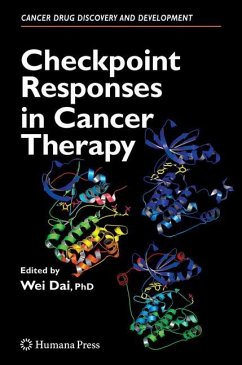Extensive research has uncovered a set of molecular surveillance mechanisms - commonly called "checkpoints" - which tightly monitor cell-cycle processes. Today's anticancer drug development has identified many of these cell-cycle checkpoint molecules as effective targets. Research now promises to uncover a new generation of anticancer drugs with improved therapeutic indices based on their ability to target emerging checkpoint components. Checkpoint Responses in Cancer Therapy summarizes the advances made over the past 20 years, identifying components of cell-cycle checkpoints and their molecular regulation during checkpoint activation and validating the use of checkpoint proteins as targets for the development of anticancer drugs. This book's distinguished panel of authors takes a close look at topics ranging from the major molecular players affecting DNA synthesis and the response to DNA damage to advances made in the identification of chemical compounds capable of inhibiting individual mitotic kinases. Illuminating and authoritative, Checkpoint Responses in Cancer Therapy offers a critical summary of findings for researchers in the pharmaceutical and biotechnology industries and a valuable resource for academic scientists in cancer research and the study of cell-cycle regulation, signal transduction and apoptosis.








